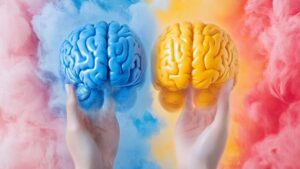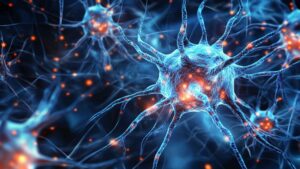

View Topics

The experiences we have as children can shape our brains for a lifetime. And learning music might be one of the most impactful. Engaging with music through playing an instrument or singing stimulates the brain in unique ways. It helps build skills that may protect against mental decline as we grow older. Musical training during…

Your choice of where to live shapes more than just your daily routine. It has a profound impact on your brain and cognitive health. The fast-paced, crowded world of city life stands in stark contrast to the serene, open spaces of the countryside. It creates environments that influence how our brains function and adapt. Environmental…

Health is the most precious thing we have. Food doesn’t always give us all the nutrients we need. Taking supplements and vitamins is becoming a necessity. Each substance performs a specific function that is necessary for the body. External supplementation will help maintain health for as long as possible. Otherwise, particular organs and systems will…

Workplaces can be full of risks that aren’t always easy to see, with chemical hazards being among the most concerning. These substances can harm the brain and nervous system in ways that may not become apparent for years. From factories to construction sites, workers may come into contact with dangerous substances like heavy metals and…

Today, the question of mask-wearing’s effect on the brain remains relevant for many people. Masks help protect individuals from various diseases and infections. At the beginning of Covid-19, most people used masks for safety and public health protection. However, some studies suggest that masks can cause discomfort during extended wear. A healthy person can safely…

Today, statistics show that almost 90% of people are right-handed. Based on handedness, people have different characteristics in how their brains work. Hand dominance has its own unique features regarding brain functioning and cognitive processes. Handedness differences involve enhanced activity in one of the brain hemispheres. People who are left-handed often have improved creative and…

For millions of people, allergy season brings more than just sneezing and watery eyes. It can also lead to a frustrating mental haze that makes it hard to focus or think clearly. This condition is often called brain fog. It’s a common but lesser-known symptom of allergies and sinus congestion. When your body fights off…

Brain injuries, particularly concussions, are a significant concern. This is particularly concerning for athletes, accident victims, and those who experience falls or car collisions. Many people recover within days or weeks. However, research increasingly reveals that these injuries can have lasting neural consequences. A single incident might appear minor, perhaps a brief loss of focus…

Many people wonder if chronic viral infections (CVIs) can lead to neurological disorders. The answer isn’t simple. However, growing research shows a clear link between the two. When viruses are in the body for a long time, they can cause trouble not just for your immune system but also for your brain. This connection happens…

The 21st century has brought rapid technological development and overwhelming amounts of information that hurt our ability to concentrate. The term “information fatigue syndrome” is increasingly used to describe this modern problem. Information overload causes sudden mood swings, leading to irrational decisions and actions. The brain becomes oversaturated with information and enters a state of…